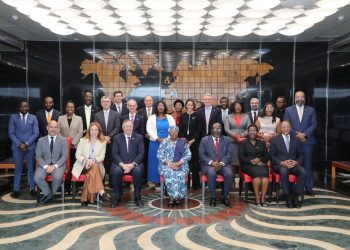
TotalEnergies EP Namibia B.V., in partnership with Impact Oil & Gas, NAMCOR, and QatarEnergy, plans to develop the Venus oilfield in Namibia’s Orange Basin, according to the company’s draft Environmental and Social Impact Assessment (ESIA) Report.
The report states that the proposed project will involve drilling up to 40 subsea wells, with oil production, storage, and offloading managed by a Floating Production, Storage and Offloading (FPSO) vessel.
“In a nutshell, the Joint Venture proposes to drill up to 40 subsea wells from the seabed, produce hydrocarbons from the subsea wells, and separate the fluids on a Floating Production, Storage and Offloading (FPSO) vessel moored at the Venus Field,” the report said.
The Venus Field lies in Block 2913B, about 300 kilometres off Oranjemund and 320 kilometres from Lüderitz, in deep waters of around 3,000 metres. The project follows the discovery and appraisal of hydrocarbons in 2022.
According to the report, the FPSO will separate and store extracted oil before transferring it to tankers for export, while gas will be re-injected into the reservoir to maintain pressure and ensure production sustainability.
Construction, drilling, and installation activities are expected to take between four and six years, with production estimated to continue for more than 20 years. No onshore production facilities are planned.
Before the project can proceed, the joint venture must obtain an Environmental Clearance Certificate (ECC) from the Ministry of Environment, Forestry and Tourism.
The ESIA process will assess potential environmental and social impacts and include public consultations, information sessions, and opportunities for comment.
The findings will guide the Ministry’s decision on whether to grant environmental clearance.
If approved, the Venus development will be among Namibia’s largest offshore oil projects, positioning the country as a key player in Africa’s deepwater energy sector, the report stated.







